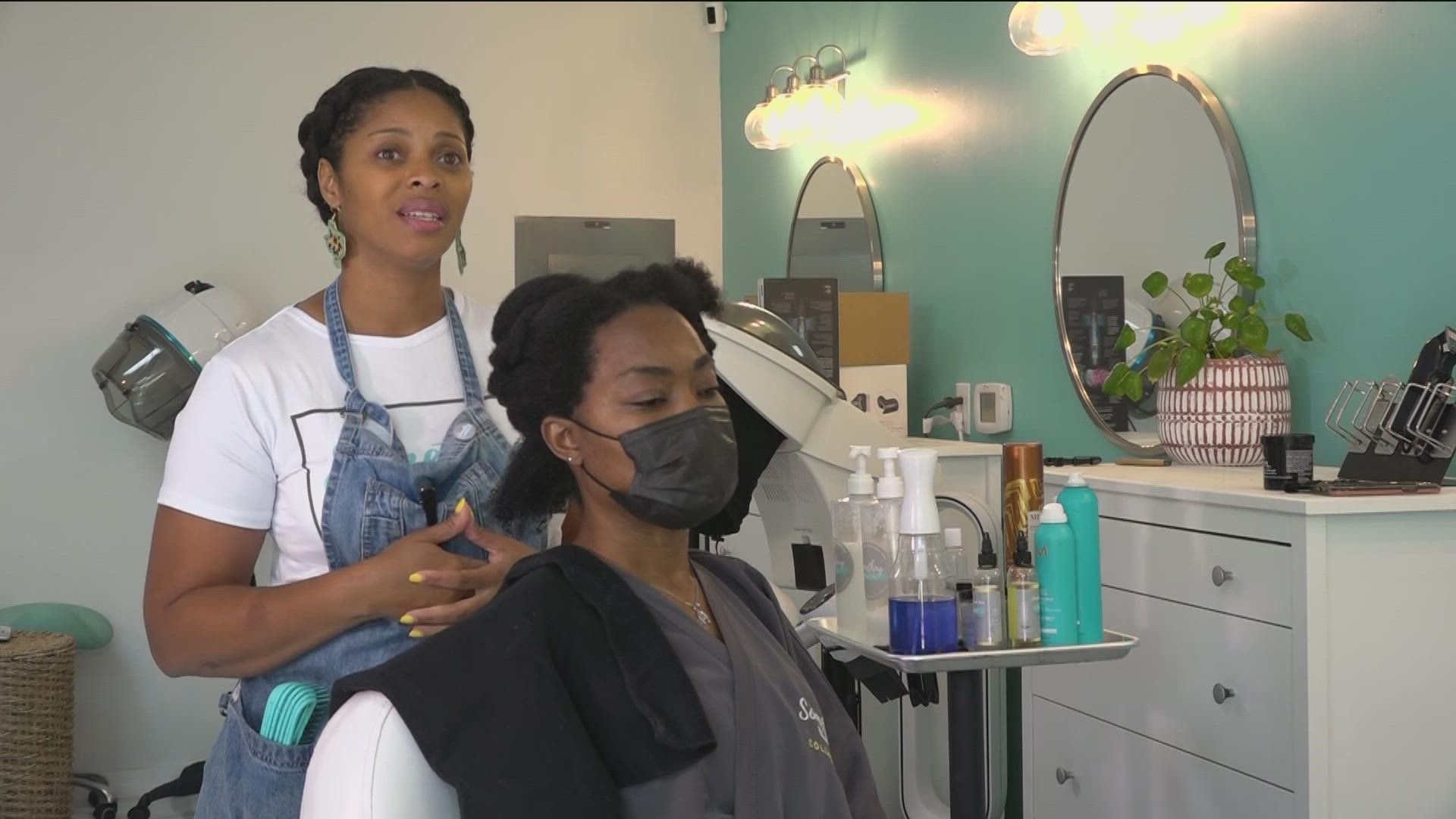AUSTIN, Texas — Austin City Council passed the CROWN Act Thursday as a step toward ending hair discrimination. CROWN stands for "Creating a Respectful and Open World for Natural Hair."
The CROWN Act was first introduced in California in 2019 and was passed by the U.S. House in March. It is now waiting on Senate approval.
Now that it was approved by Austin City Council, City Code will be amended to add "protective hairstyles" such as afros, cornrows and bantu knots to the definition of "Discriminatory Employment Practice." Austin is the first Texas city to pass the act.
LaTishia Mitchell owns a salon in Round Rock called Something Natural Hair, which focuses on natural and protective hairstyles. She said this is a big step and hopes other places will follow Austin's lead. Having this type of discrimination actually be prohibited in writing is needed, she said.
"I hear all the time from clients coming in, they would say that they can't wear their hair certain ways because they don't feel like they'll be accepted in their job or may not be promoted," said Mitchell.
"Too often minorities are judged not only by the color of their skin but also by the texture of their hair,” civil rights officer Carol Johnson said in a statement. “Across the country, we continue to see the harmful effects of racial discrimination due to natural hair, and many states and cities are finding ways to address this through CROWN Act legislation.”
This will amend Austin City Code to prohibit discrimination based on "protective hairstyle" in housing, public accommodations and employment.
"I've been kind of, like, waiting and chanting and waiting on, like, something to be done and people to be able to like just respect other people and their culture," said Mitchell.
Prior to passing the act, the city manager held community forums and met with civil rights organizations and businesses to discuss the issue of hair discrimination. The forums allowed people to share what kind of safeguards would make them comfortable with presenting their protective hairstyles and natural hair textures in settings such as schools, housing and the workplace.
People like Mitchell said that these types of measures will help not only people now but will also be impactful for future generations of people with textured hair.
"I think that it also shows to other students that it's OK to be yourself and be loved in your own skin and your own hair," said Mitchell.
“The impact of race-based hair discrimination can last a lifetime,” Johnson said. “We know that discrimination hurts and this is particularly harrowing when it impacts our children, scarring their self-esteem.”
PEOPLE ARE ALSO READING:

